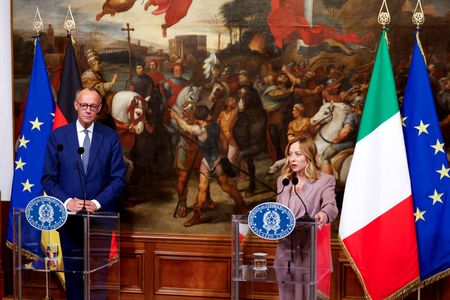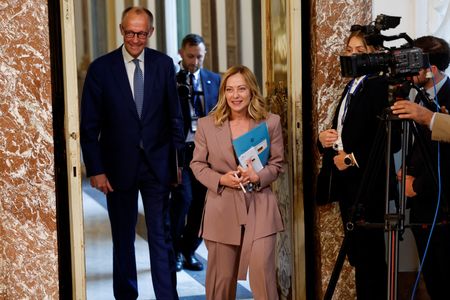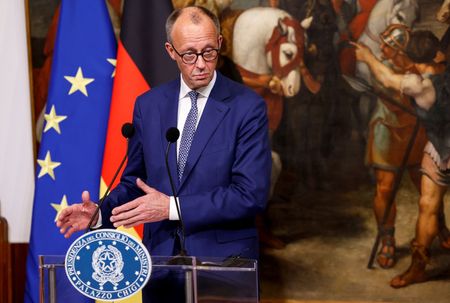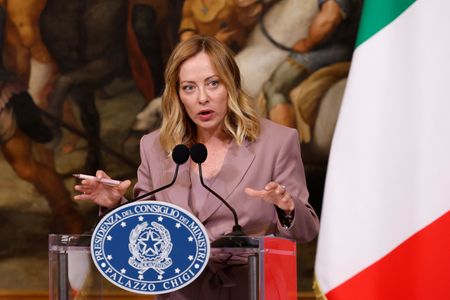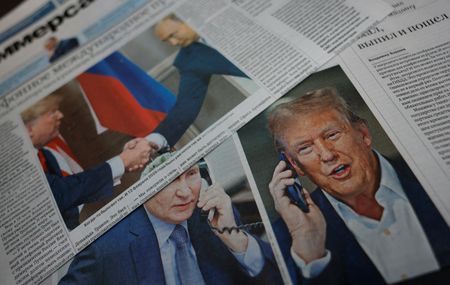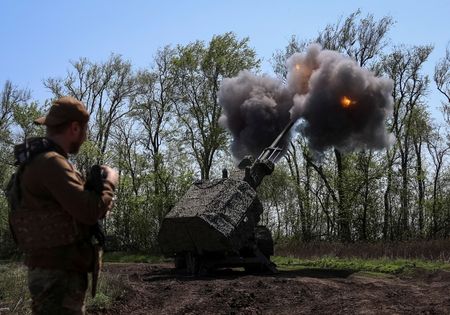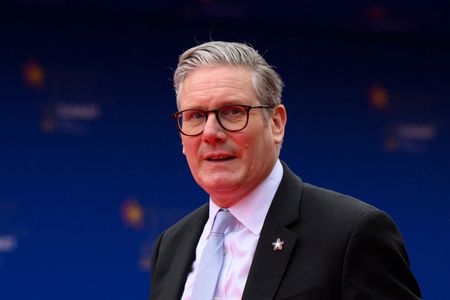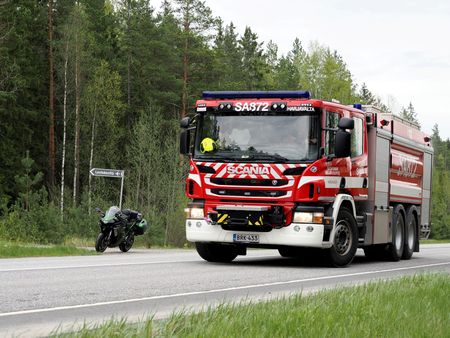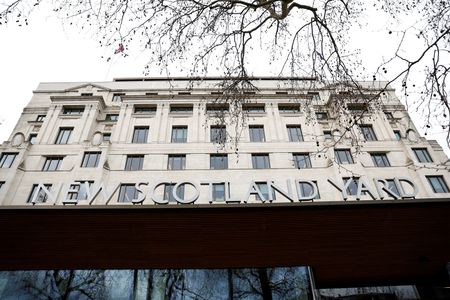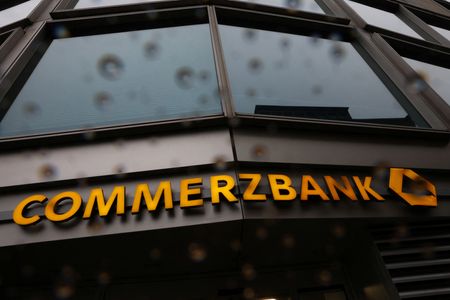ROME/BERLIN (Reuters) -Europe is a long way from talking about deploying troops in Ukraine as all its efforts are currently focused on securing an unconditional ceasefire from Russia, German Chancellor Friedrich Merz and Italian Prime Minister Giorgia Meloni said on Saturday.
“The next step must be that the format for peace talks is made clear, as well as which security guarantees could possibly, one day, be necessary for Ukraine,” Merz said, describing these matters as currently unforeseeable.
“There is no reason to talk about (troops) at the moment, we are far from that. We want the weapons to stop, the killing to end … these are the questions we are dedicated to now, and no others,” he added.
The leaders of France, Germany, Britain and Poland, together with Ukrainian President Volodymyr Zelenskiy, met on the sidelines of a summit in Albania on Friday to discuss the situation. They also called U.S. President Donald Trump, who said on Saturday he would speak with Russian President Vladimir Putin on Monday.
Meloni did not take part in the meeting – an absence that Italian media has described as a deliberate snub, suggesting that French President Emmanuel Macron had not wanted her involved.
Meloni told reporters on Saturday that Italy was open to joining any international format aimed at ending the war, but warned against divisions within the West.
“Western unity has been our greatest strength since the beginning of Russia’s invasion,” she said. “At a delicate time like this, it is important to set aside any personal (differences) that could undermine that unity.”
‘BELOW EXPECTATIONS’
The European Union is working on a new package of sanctions to increase pressure on Moscow over the war, after the first face-to-face talks between Russia and Ukraine in three years on Thursday failed to yield a ceasefire, though Russia agreed to continue contacts.
“Yesterday’s talks in Istanbul ended below our expectations despite the extremely constructive positioning of Ukraine’s negotiators,” Merz said.
Merz’s position on peacekeeping troops echoes that of his predecessor Olaf Scholz, who also prioritised peace deal talks over discussion of boots on the ground.
UK Prime Minister Keir Starmer has previously expressed willingness to send peacekeeping troops, but only backed by a U.S. security commitment for European countries.
Russia has repeatedly rejected the idea of soldiers from countries in the NATO military alliance being stationed in Ukraine.
(Reporting by Victoria Waldersee in Berlin, Crispian Balmer in Rome. Editing by Mark Potter)

